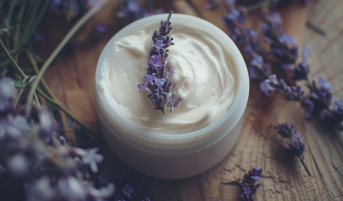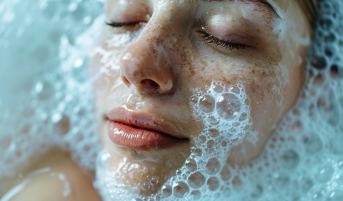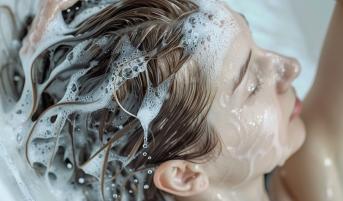Dead Sea Salt Baths for Insomnia

Experiencing insomnia can affect various aspects of your life, leading to diminished well-being. For those seeking natural remedies, incorporating Dead Sea Salt baths into your sleep routine may offer significant benefits. This time-honoured tradition has a rich history of providing therapeutic effects, enhancing sleep quality, and reducing symptoms of insomnia. Let's delve into the key aspects that make Dead Sea salt baths an effective strategy for managing sleep disorders.
Key Takeaways
- Understanding Insomnia: Recognises the complexity of insomnia, which often results from stress, underlying medical conditions, an inadequate sleep environment, and lifestyle choices.
- Impact of Insomnia on Health: Highlights the detrimental effects of insomnia on overall health, including a weakened immune system, obesity, cardiovascular diseases, mood disorders, and cognitive impairments.
- Composition of Dead Sea Salt: Emphasises the rich mineral content of Dead Sea salt, including magnesium, calcium, sodium, and potassium, beneficial for skin health.
- Health Benefits of Dead Sea Salt: Dead Sea salt is praised for its skin hydration properties, inflammation reduction, detoxification aid, and improvement in healing processes.
- Historical Significance: Acknowledges Dead Sea salt's long history of use in ancient Egyptian beauty regimes and its status as a natural healer in alternative medicine practices.
- Improving Sleep Hygiene: Suggests that Dead Sea salt baths can be a valuable part of sleep hygiene by signalling the body to relax and prepare for sleep.
- Scientific Research: Points to studies that support the role of minerals in Dead Sea salt, particularly magnesium, in enhancing melatonin production and improving sleep quality.
- Preparing the Bath: Outlines a simple preparation method for a therapeutic bath using 2 cups of Dead Sea salts in warm water, recommending a soak duration of around 20 minutes.
- Optimal Bathing Conditions: Advises taking a Dead Sea salt bath 1-2 hours before bedtime in a soothing temperature and relaxed atmosphere to maximize sleep benefits.
- Additional Relaxation Techniques: Encourages combining the bath with other relaxation practices such as deep breathing, stretching, yoga, and aromatherapy for enhanced relaxation and sleep improvement.
- User Experiences: Notes that individuals using Dead Sea salt baths often report better sleep quality and an easier time falling asleep, although experiences can vary.
- Precautions and Considerations: Recommends consulting with a healthcare provider for those with low blood pressure or specific health conditions and cautions against overuse.
The Wonders of Dead Sea Salt
Dead Sea salt has a legendary reputation for its therapeutic properties, largely due to its unique composition. Rich in minerals like magnesium, calcium, sodium, and potassium, it offers numerous health benefits, including
- Skin hydration and improvement in skin conditions
- Reduction in inflammation and muscle soreness
- Detoxification and support of the body's healing processes
Historically, Dead Sea salt therapies have been a significant part of cultural practices, revered for:
- Its use in ancient Egyptian beauty regimens
- Therapeutic visits to the Dead Sea by historical figures
- The Role in traditional alternative medicine as a natural Healer
- Insomnia is a complex condition that goes beyond the occasional difficulty of falling or staying asleep. It's characterised by a pattern of chronic sleep disturbances that significantly impact daily functioning and well-being.
Key symptoms of chronic insomnia include:
- Difficulty Falling Asleep: Struggling to fall asleep at the beginning of the night.
- Waking Up Frequently: Experiencing interruptions in sleep throughout the night.
- Trouble Returning to Sleep: Finding it hard to go back to sleep after waking up during the night.
- Early Morning Awakenings: Waking up earlier than desired with an inability to fall back asleep.
- Daytime Impairments: Experiencing daytime sleepiness, fatigue, irritability, difficulty concentrating, or a noticeable decline in performance and mood.
Contributing Factors to Insomnia
Several factors can predispose, precipitate, or perpetuate insomnia, including:
- Stress and Anxiety: High levels of stress or persistent anxiety can significantly disrupt sleep patterns.
- Medical Conditions and Medications: Certain health issues and the side effects of some medications can lead to insomnia.
- Sleep Environment: An uncomfortable sleep environment, including noise, light, or temperature, can interfere with the ability to fall and stay asleep.
- Lifestyle Habits: Disruptive habits, such as irregular sleep schedules, caffeine or alcohol consumption close to bedtime, and engaging in stimulating activities, can contribute to insomnia.
- Technology Use: The blue light emitted by electronic devices can inhibit the production of melatonin, the hormone responsible for regulating sleep-wake cycles, thus making it harder to fall asleep.
Consequences of Chronic Sleep Deprivation
The effects of chronic insomnia extend beyond mere tiredness, including:
- Weakened Immune System: Insufficient sleep can impair the body's immune response, making one more susceptible to infections.
- Metabolic and Weight Issues: Sleep deprivation is linked to weight gain and a higher risk of metabolic disorders.
- Increased Cardiovascular Risk: Insomnia can lead to an elevated risk of heart diseases and diabetes due to the strain on the body.
- Mood Disorders: Chronic sleep issues are associated with an increased risk of developing mood disorders, including depression and anxiety.
- Cognitive Impairment: Insomnia can affect cognitive functions, leading to problems with memory, attention, and decision-making.
Dead Sea Salt and Nighttime Routines
Good sleep hygiene is crucial for overcoming insomnia, and it includes habits that promote consistent, uninterrupted sleep. A Dead Sea salt bath can enhance your sleep hygiene by
- Providing a relaxing activity that prepares the body for rest
- Helping to establish a peaceful nighttime routine
- Reducing physical ailments like muscle pain that could disrupt sleep
Integrating Dead Sea salt baths into your evening ritual can:
- Signal to your body that it's time to wind down
- Allow you to take a break from screens and technology
- Create a calming atmosphere conducive to a good night's sleep
The Science Behind Dead Sea Salt for Insomnia
Research into the connection between Dead Sea salt and sleep has shown promising results. Minerals found in salt, particularly magnesium, play a pivotal role in sleep regulation by
- Supporting the production of melatonin, the sleep hormone
- Relaxing muscle and nervous tension
- Stabilizing mood and reducing stress levels (which can interfere with sleep)
Studies suggest that Dead Sea salt may:
- Improve sleep quality and duration
- Help ease restlessness and nocturnal awakenings
- Aid in falling asleep more quickly
How to Prepare a Dead Sea Salt Bath
To create the perfect Dead Sea salt bath for insomnia, follow these steps:
- Fill your bathtub with warm (not too hot) water
- Add 2 cups of Dead Sea salt while the water is running to help it dissolve
- Soak for about 20 minutes—enough time to reap the benefits without over-drying your skin
- For added relaxation, dim the lights or use candles, and play soft music or ambient sounds
For optimal sleep benefits, consider the:
- The best time for your bath, ideally 1-2 hours before bed
- Maintaining a bath temperature that feels soothing and isn't overly hot
- Keeping a warm robe nearby for when you exit the bath to maintain that cosy feeling
Additional Relaxation Techniques to Combine with Dead Sea Salt Baths
Maximise your relaxation by pairing your bath with other techniques:
- Deep breathing exercises to further calm the mind and body
- Gentle stretching or yoga to loosen any residual muscle tension
To enhance the ambience and relaxation, you might also include:
- Aromatherapy using calming essential oils like lavender or chamomile
- A warm cup of herbal tea post-bath to promote a sense of well-being
User Experiences and Testimonials
People who have incorporated Dead Sea salt into their routine for combating insomnia often report:
- A noticeable improvement in sleep quality
- Greater ease in falling asleep
- Feeling more refreshed upon waking
However, it's also important to note any limitations:
- Individual results can vary, and what works for one person may not work for another
- Dead Sea salt baths are an aid to relaxation, not a cure for underlying medical conditions causing insomnia
Precautions and Considerations
When indulging in Dead Sea salt baths, keep the following safety tips in mind:
- Avoid overuse, which can lead to dehydration of the skin
- Make sure to rinse off any residue after your bath to prevent skin irritation
Additionally, Dead Sea salt baths may not be suitable for everyone:
- Individuals with low blood pressure should consult with a healthcare provider before use
- Pregnant women or those with health conditions should seek medical advice beforehand
Using Dead Sea salt baths as part of your routine may prove to be a valuable tool in the quest for better sleep. Remember to:
- Combine it with good sleep hygiene practices
- Consider it one part of a holistic approach to treating insomnia
Embracing the time-tested benefits of Dead Sea salt could be the natural solution you need for a restful night's sleep.



